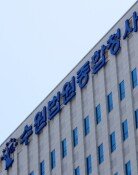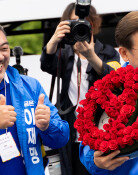[Opinion] Lone Star & Byeon Yang-ho
[Opinion] Lone Star & Byeon Yang-ho
Posted January. 17, 2009 08:51,
The ill-fated relationship between the U.S. private equity fund Lone Star and former Finance Ministry official Byeon Yang-ho dates back to 2003. Back then, Byeon was director-general for financial policy at the Finance and Economy Ministry and literally had the power to change the fate of financial institutions. Byeon, a frontrunner among those passing the higher civil service exam, maintained his high-profile position for nearly three years. Even when the country was hit by the Asian financial crisis in the late 1990s, Byeon, who had served as international finance director, was unrivaled in practical experience.
Many in and out of the financial sector said Byeon was destined to be finance minister. No one thought that his top government post would turn into the Grim Reaper and bring down such a successful bureaucrat like Byeon.
His thorny path began in June 2006, a year after retiring from public life. His last post was commissioner of the Korea Financial Intelligence Unit. The Supreme Prosecutors` Office detained him on suspicion of playing a central role while serving as a ministry director-general in Lone Stars acquisition of Korea Exchange Bank at a huge discount. The case drew a great deal of attention from the international financial world. Prosecutors kept applying for an arrest warrant, only to be rejected by the court time after time like a ping-pong game. The clash of pride between the two organizations even led to a war of words between the Supreme Court chief justice and the prosecutor general.
Byeon was indicted on two charges: alleged unfair involvement in the sale of the bank to Lone Star and receiving 200 million won (147,000 U.S. dollars) in return for canceling the bad debt of a Hyundai Automotive Group affiliate. As a prelude to the Lone Star investigation, prosecutors investigated his involvement in the Hyundai case first despite the two cases being separate. In the Hyundai case, the Supreme Court reversed the Seoul High Courts ruling of a five-year prison term and fine of 150 million won (111,000 dollars). In the Lone Star case, Byeon was found not guilty in the first trial in November last year.
In the Hyundai case, the Supreme Court nullified the High Courts decision, saying, On Byeons receipt of bribes, there is no sufficient evidence to support the lobbyists testimony without a doubt. Unless new evidence is produced, the Supreme Court verdict will likely be confirmed. It is important to note, however, that Byeons bribery charges are not connected to the Lone Star case, where the essence of the issue is crimes involved in the sale. In his unfinished manuscript titled My Observation of the Supreme Prosecutors` Office, Byeon says, I have learned from experience that the Supreme Prosecutors` Office does not always pursue the truth. It will be interesting to see how the Supreme Prosecutors` Office will respond after losing points against Byeon with the Supreme Court.
Editorial Writer Yook Jeong-soo (sooya@donga.com)







